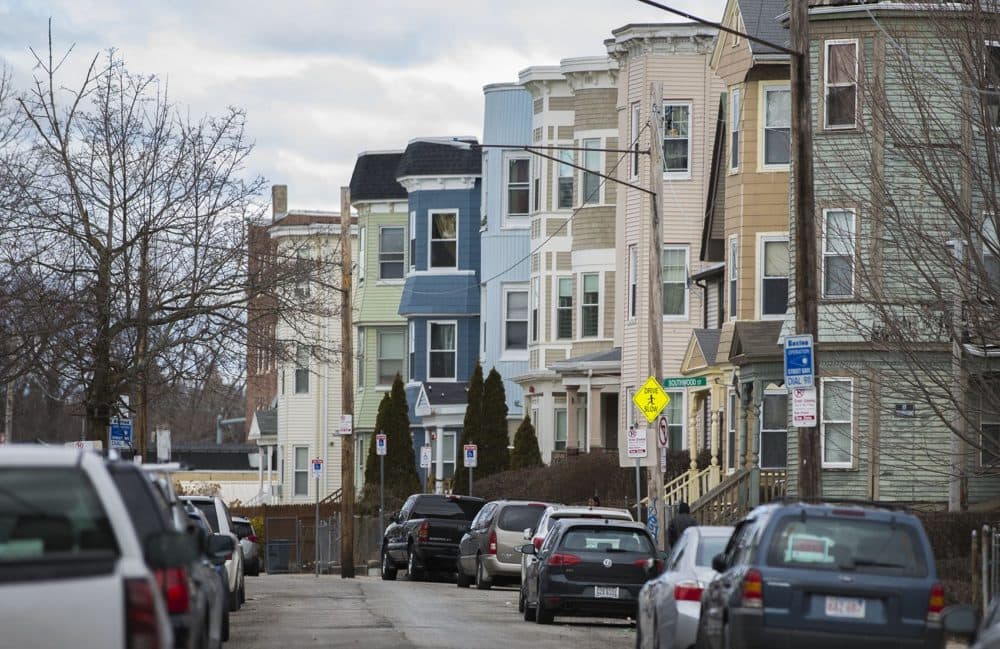Advertisement
Mass. Fair Housing Laws Lack Teeth, Critics Say

Shanyce Parker has a credit score above 800, a long history of work as a housing advocate for individuals struggling with homelessness, and has typically paid her rent on time, all characteristics she believes should make her a top candidate for apartment openings.
But when Parker informs realtors that she qualifies for a housing voucher, the South End mother of two told lawmakers on Monday, "they usually ghost me."
"I stopped keeping count of the number of apartments I've been turned away from over the years," Parker said. "I used to try to educate agents about vouchers and how they work, but now, when someone says no, I don't fight them any more."
Massachusetts has anti-discrimination laws on the books, but experts and advocates warn that insufficient training and a lack of enforcement allows discriminatory housing practices to fester, curtailing the options for many who already face other obstacles.
Taking aim at the issue, lawmakers pushed a bill (H 428 / S 208) Monday that would lengthen the license suspension periods for those found to discriminate, empower fair housing enforcement agencies to refer more cases to registration boards, and add a fair housing and civil rights licensing expert to the Board of Real Estate Brokers.
The legislation, filed by Rep. Adrian Madaro of East Boston and Sen. Adam Gomez of Springfield, would also require all real estate brokers or salespeople to complete at least four hours of dedicated fair housing training as part of the regular courses they must undergo to acquire or renew a license.
Madaro said that stronger penalties would prompt "a deeper culture shift and change within the housing market."
"By enhancing the strength of existing fair housing laws, we can create a more robust response to the housing crisis we're dealing with here in the commonwealth," Madaro said. "A failure to address discrimination against voucher-holders jeopardizes the efficacy of one of the best tools we have available in our fight against the housing crisis."
Researchers from Suffolk University Law School, Analysis Group and The Boston Foundation sent mock renters out to the greater Boston market to investigate how a renter's race or ethnicity and voucher status impacted their results.
They found substantial gaps: Black testers seeking apartments faced discrimination in 71% of cases, and those with Section 8 housing vouchers faced discrimination in 86% of cases regardless of their race, researchers concluded last year.
Catherine LaRaia, who worked on the research team, told the committee that the people recruited for the experiment faced "blatant" discrimination, often obvious enough that they "knew exactly what was happening."
In one case, LaRaia said, a tester reported that a realtor responded enthusiastically by phone during an inquiry about an apartment, but that the tone "changed abruptly" when the tester provided the first name Kareem. The agent said they would call a day later, but never did so.
LaRaia recalled another tester, a white woman who did not describe any need for a voucher, toured an apartment and was then pulled aside by an agent, who invited her to join a private showing for an unlisted unit. Two Black testers and one who was white but held a voucher were never extended the same opportunity, she said.
"We didn't design this study to look at brokers, but we found them," LaRaia said. "Over 90% of testers interacted with real estate agents, and these are licensed professionals engaged in discriminatory practices."
No one spoke in opposition to the legislation at Monday's hearing.
The Massachusetts Association of Realtors backs separate legislation on Beacon Hill that requires additional fair housing education to acquire a real estate license and imposes additional continuing education requirements, but does not include strengthened enforcement mechanisms.
Theresa Hatton, the association's CEO, said in a statement to the News Service that housing discrimination "remains a significant concern" despite her group's effort to educate members. Hatton said she looks forward to working with supporters of the Madaro-Gomez bill and the committee "to craft legislation that will further the goals of the Fair Housing Act."
Will Onuoha, executive director of the City of Boston's Office of Fair Housing and Equity, told the committee that he has observed "overwhelming evidence" of housing discrimination across the city. The conditions that LaRaia and others at the hearing described, Onuoha said, are "exactly what we see on a day-to-day basis."
"There's a reason why Boston in the state of Massachusetts has a moniker of being called a racist city, and housing discrimination is at the center of it," he said. "This bill is so important because it will force real estate brokers to be responsible for their part in housing discrimination."
For Parker, the bill's stakes are clear.
"If this bill had already been passed, I'm sure I would have moved years ago," she said.